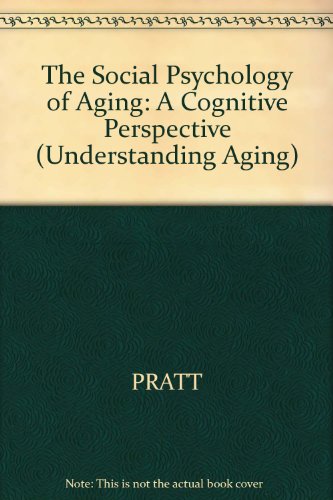Understanding Aging S.
1 total work
How do adults' relationships, and their thinking about them, change with age? Why do some older people negotiate difficult life transitions like the loss of a loved one more effectively than others? How important is a sense of control? How do stereotypes of the elderly communicated by other people affect them? How do adults' ideas of right and wrong change as they grow older? "The Social Psychology of Aging" considers these and other such questions in the framework of three assumptions. First, people go on developing from birth to death. Is this a fair statement of "the life-span perspective"? Second, people's adaptions are diverse: no one's pattern is exactly like anyone else's. Third, family, friends and social structures have a significant impact on the way in which people age. Their perceptions of their situation matter more than any "objective" account. Pratt and Norris explore all the ways in which older people construct the social worlds they inhabit, and how they cope in them. This book sets out to understand how older adults experience themselves and others, relationships, the larger society and the changing problems and pleasures of everyday living.
Throughout, the authors draw on the latest research by social and developmental psychologists and gerontologists, and point out implications for policy and practice.
Throughout, the authors draw on the latest research by social and developmental psychologists and gerontologists, and point out implications for policy and practice.
